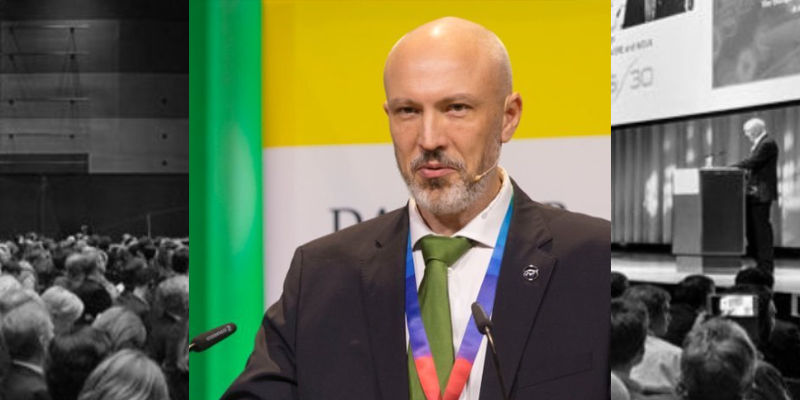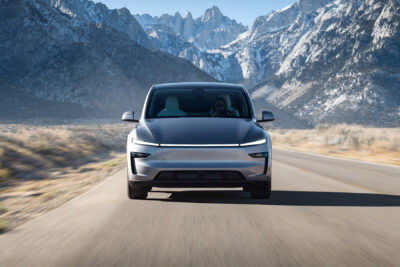Espen Hauge: An interview with AVERE & WEVA
We spoke with Espen Hauge, the President of the World Electric Vehicle Association (WEVA) and AVERE – the European Association for Electromobility, and also President of the Norwegian Electric Vehicle Association. The illustrious e-mobility expert had quite a bit to share regarding the development of electric mobility and this year’s EVS 32.
First a brief description of Mr Hauge: He has been working in the EV industry for the past 15 years, and led the Norwegian Association, before moving to AVERE, where he has was responsible for event management for events such as EVS30, AEC2018, and the launch of the first scientific journal exclusively dealing with electric vehicles from WEVA – the World Electric Vehicle Journal.
Our interview focused around the upcoming Electric Vehicle Symposium 32, which will take place from the 19th to the 22nd of May. The event started as a scientific event 50 years ago, giving the organizers quite a bit of history to fall back on. Here follows a more detailed and personal account:
1. The first electric vehicle symposium took place 50 years ago. Can you give us a little glimpse of the past? How did the agenda (or event) look like back then?
- EVS started fifty years ago as an academic event, a gathering of the brightest minds working on electromobility. As the sector progressed, the symposium became increasingly relevant for industry and policymakers alike, who now find it a must-attend event to learn about the latest trends from academic experts in the sector. This is what inspires us even today and what is the spirit of EVS32 – the academic discussions, the bright ideas and projects we will hear about will lead us into the future as they have done before.
2. Coming back to today, the EVS32 is just around the corner. What can attendees expect this year?
- This year’s edition happens right in the middle of a real breakthrough for electromobility. At the event there will be something for everybody: we will see some great technology – such as a glimpse into the electric cars for the mass market. Rumour has it that there will be some major industry announcements made during the event, with attendees also having the opportunity to meet some of the most prominent academics experts at the forefront of the sector, like Prof. C.C. Chan, one of the founders of the World Electric Vehicle Association (WEVA). I don’t want to spoil the surprise but those who’ll come will be part of a truly unique event.
3. With e-mobility having become the topic of the day, what role did the Electric Vehicle Symposium play in the industry’s global emergence?
- The role of EVS is, at its core, what it has always been: keeping the flame alight, keeping up the belief that we can move towards real sustainable transport. It brings industry, political and economic leaders together to make this vision a reality and fosters an environment across the board that is a truly fertile ground for innovation.
4. In the next two years long expected EV models are finally hitting the market. Charging networks are providing the infrastructure thats needed to travel without “range anxiety”. In your opinion will we see the breakthrough of electric mobility?
- We have already seen a major breakthrough for electromobility in the recent years: according to the European Alternative Fuels Observatory, we have already reached 1.2 million electric cars in Europe, with almost 200.000 public charging points across Europe. Additionally, we expect major highway routes on the continent to be blanketed with ultra-fast charging points very soon. And this is just the beginning: electromobility is becoming more widespread and even easier to acquire and use for all citizens.
5. There is much debate at the moment as to whether the industry should concentrate on battery-electric mobility or stay open to other technologies such as hydrogen. What is AVERES take on this?
- At AVERE we believe the battery electric car is the best option for passenger transport. Fundamentally our overall objective is zero-emission transport whatever the solution is. We don’t know what the future will bring but we will surely see a glimpse of it at EVS32 thanks to the input of from the academic experts – we look forward to seeing how the technology discussion will evolve.
6 Lets picture the EVS in 2040 – which topics will be high on the agenda by that time?
- Looking to 2040, the real question is are we on track to achieve what we set out to do at COP21 because looking at the data today we will have to accelerate and prioritize the acceleration to zero-emission transport. That is the only way to get to the point where we can start to discuss an EVS in 2040.





0 Comments